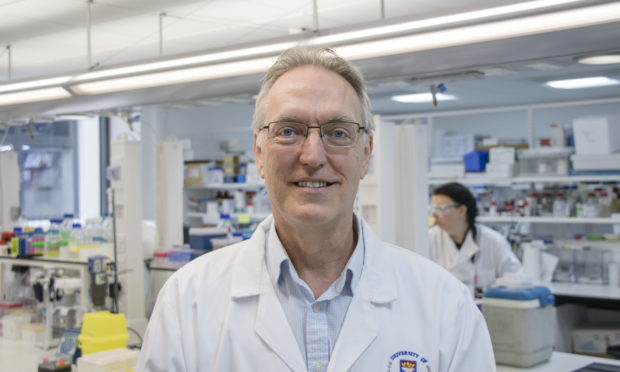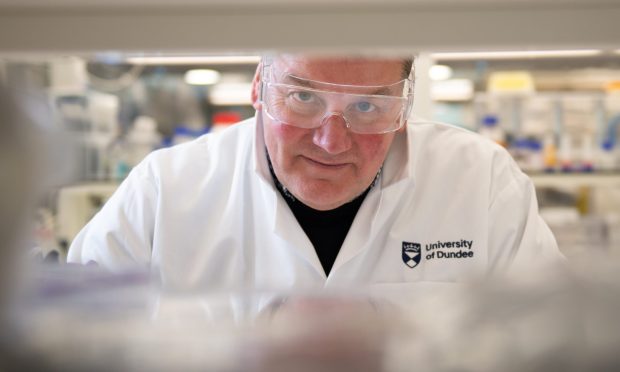Scientists in Dundee are developing drugs for the “long-term” fight against the coronavirus family.
A Dundee University team has secured more than £4 million to develop drugs to tackle Covid-19 and similar diseases that are likely to arise in the future.
Professor Paul Wyatt, head of the university’s acclaimed Drugs Development Unit, said: “Covid-19 will not be the last coronavirus the world will face and, even if it is brought under control, we are still in the early stage of what will be a long-term fight.”
The university unit has been working on Covid-19 treatments since the start of the pandemic and the extra funding will allow the team to consider “future strains” of the virus family.
The funding comes from the Covid-19 Therapeutics Accelerator, an international partnership started by the Bill & Melinda Gates Foundation and including health foundation Wellcome and business Mastercard.
Professor Wyatt added: “This is an insurance policy for the future because we want drugs proven to be effective against coronaviruses ready on the shelf when future outbreaks occur.”
The three-year Lead Optimization for Coronavirus Infections (LO4CVI) project will focus on identifying safe drugs, to be taken orally, with the potential to tackle acute infections and reduce transmission in the general population.
The team will develop antiviral drugs that work by inhibiting the development of the disease rather than killing a virus.
The researchers’ primary focus will be on Covid-19 but the project team aim to produce “broad-spectrum” drugs that serve as “important weapons” against coronavirus strains that emerge in the future.
The coronavirus family has already given rise to diseases such as MERS, largely affecting the Middle East, and SARS, which emerged in China in the early 2000s, as well as Covid-19.
Professor Wyatt said the knowledge gathered from studying SARS and other coronaviruses would “provide us with starting points in our quest to identify potential drugs.”
”We are therefore looking for candidate drugs that can stop Covid-19 from infecting new cells or replicating once it has infected the cell,” he added.
The Drug Discovery Unit was established in 2006 to translate world-class biology research into new drugs and treatments.
The group works across multiple disease areas and collaborates with global partners to address unmet medical needs.










